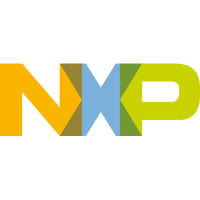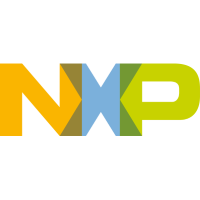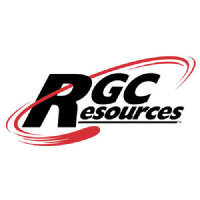
NXP Semiconductors NV
NASDAQ:NXPI

NXP Semiconductors NV
Once upon a time in the world of semiconductors, NXP Semiconductors NV emerged as a formidable player, deeply rooted in innovation and a rich legacy of technological advancements. Founded as a division of Philips, NXP went independent and successfully carved its own path in the semiconductor industry. Today, the company is recognized as a global leader in developing secure connectivity solutions, with its operations spanning across multiple sectors including automotive, industrial, mobile, and smart home technology. NXP’s prowess lies in its ability to marry hardware and software, creating solutions that deliver seamless consumer experiences. The company's portfolio includes microcontrollers, secure identification, and automotive radar chips, all of which play crucial roles in an increasingly connected world.
Financially, NXP thrives by anchoring itself in high-growth markets and maintaining a strong focus on research and development. It leverages its robust supply chain and strategic partnerships to deliver value to its clients. Revenue streams are largely driven by the automotive sector, where its chips power everything from in-car entertainment systems to advanced driver assistance systems (ADAS). Additionally, NXP’s solutions facilitate secure transactions in financial services and enhance IoT systems' capabilities through its edge-based devices. Overall, NXP Semiconductors NV's business model isn't just about selling chips; it’s about pioneering connectivity solutions that advance how people interact with technology across numerous devices and platforms globally.
Earnings Calls
In the first quarter of fiscal 2025, RGC Resources reported a net income of $5.3 million, equating to $0.51 per share, reflecting an increase from $5 million or $0.50 per share a year prior. Gas volumes surged 16% due to weather impacts and a key customer’s increased consumption. Capital spending totaled $5.7 million, up 8.4% year-over-year, with a full-year budget of $21.6 million. The company anticipates an earnings per share forecast of $1.18 to $1.25 for the fiscal year while addressing inflation through rate adjustments that resulted in a projected revenue increase of $4.08 million through June 2025.
Management
William J. Betz serves as the Executive Vice President and Chief Financial Officer of NXP Semiconductors NV. In his role as CFO, Betz is responsible for overseeing the company's financial operations, including financial planning, analysis, and reporting, as well as tax, treasury, and investor relations activities. He joined NXP in 2018 as Senior Vice President of Business Planning and Analytics and has played a crucial role in driving the company’s financial strategy and growth initiatives. Prior to joining NXP, Betz held leadership positions in finance at major technology companies, where he gained extensive experience in managing complex financial environments and supporting business transformations. Under his financial leadership, NXP continues to strengthen its position as a leading supplier in the semiconductor industry, focusing on innovations in automotive, industrial, and IoT solutions.
Andrew J. Micallef is a seasoned executive in the semiconductor industry and serves as the Executive Vice President and Chief Operations Officer (COO) at NXP Semiconductors NV. With a strong background in operations and management, Micallef oversees the company’s global manufacturing and supply chain strategies. Before joining NXP, he held several key leadership positions in prominent technology organizations, which contributed to his extensive expertise in the field. His role is critical in ensuring the efficiency, quality, and innovation of NXP's products as the company continues to advance in the competitive semiconductor market.
As of the latest update, Christopher L. Jensen serves as the Executive Vice President and Chief Financial Officer (CFO) of NXP Semiconductors NV. Jensen joined NXP Semiconductors, a leading global semiconductor manufacturer known for its expertise in automotive, security, and connectivity solutions, with a wealth of experience in finance and strategic operations. Prior to his role at NXP, Jensen held various leadership positions across multiple industries, demonstrating strong capabilities in financial management, mergers, acquisitions, and investor relations. His strategic insights and leadership have contributed to NXP's financial stability and growth, guiding the company through complex global markets and technological advancements. Jensen is recognized for his adept handling of financial strategies and his role in supporting NXP’s strategic initiatives aimed at enhancing shareholder value and driving sustainable business growth. His educational background and professional experience have positioned him as a key figure in managing NXP's financial operations on a global scale.
Lars Reger is a distinguished figure in the field of semiconductor technology, known for his expertise in the automotive and technology sectors. As the Chief Technology Officer (CTO) of NXP Semiconductors NV, Reger has played a crucial role in guiding the company's technological advancements and innovation strategies. Before joining NXP, Lars Reger accumulated extensive experience in various high-profile positions. He held significant roles at leading technology companies including Siemens, Infineon, and Continental, where he specialized in automotive electronics. His work primarily focused on pioneering developments in connectivity, secure identification, and smart mobility solutions, which are vital to the future of automotive technology. At NXP, Reger has been instrumental in driving forward the company's initiatives in areas such as secure connectivity, machine learning, and advanced driver-assistance systems (ADAS). His leadership and foresight have been integral to NXP's mission to improve safety, security, and user experience in automotive and other technology-driven sectors. Reger is highly regarded not only for his technical acumen but also for his ability to foresee future trends and challenges in the semiconductor industry. Under his guidance, NXP continues to maintain its position as a leader in innovative semiconductor solutions tailored for the evolving needs of the modern world. His contributions are seen as pivotal in the convergence of automotive and digital technology, shaping the future landscape of smart and secure connected vehicles.
Ron Martino is a senior executive at NXP Semiconductors, where he has held key leadership positions. With a strong background in engineering and management, Martino has been instrumental in driving innovative strategies and product development within the company. His expertise lies in microcontroller and microprocessor technology, playing a significant role in advancing NXP's offerings in these areas. Martino's leadership is marked by a focus on expanding market reach and enhancing the technological capabilities of NXP's products, reflecting his commitment to fostering innovation and maintaining NXP's competitive edge in the semiconductor industry.
Dr. Johannes Anetta Wilhelmus Schreurs is a notable figure at NXP Semiconductors NV, where he has made significant contributions in leadership and technology development. With an extensive background in engineering and management, Dr. Schreurs has held key positions that have influenced NXP's strategic direction and innovation processes. His expertise spans across semiconductor technologies, where he has been instrumental in driving forward product development and research initiatives. Dr. Schreurs' work is characterized by a focus on advancing semiconductor solutions that meet the evolving demands of the tech industry, underlining his commitment to fostering technological progress. His leadership style, grounded in his deep technical knowledge and strategic insight, continues to impact NXP's standing as a leader in the semiconductor sector.
Luc De Dobbeleer is an accomplished executive in the tech industry, known for his leadership role at NXP Semiconductors NV. At NXP, he serves as the Global Head of Sales for the Secure Transactions and Identification (STI) business unit. Luc has played a crucial role in expanding the company's influence and footprint in the semiconductor market, specifically focusing on secure identification solutions such as banking cards, eGovernment, transportation, and access management. With a background in sales and extensive experience within the semiconductor industry, Luc has a strong track record of building strategic relationships and driving growth. His expertise lies in understanding the complex dynamics of secure transactions, ensuring that NXP stays ahead in innovation and reliability. His leadership has been pivotal in navigating the challenges of the industry while capitalizing on emerging opportunities within secure identification. Before his tenure at NXP, Luc De Dobbeleer held various positions that equipped him with a deep understanding of sales strategies and market dynamics across different geographies. His career reflects a blend of technical competence and strategic vision, making him a valuable asset to NXP and a noted figure in the industry.
Rafael Sotomayor is an accomplished business executive known for his extensive experience within the semiconductor industry. At NXP Semiconductors NV, he serves as the Executive Vice President and General Manager of the Connectivity and Security business. In this role, Sotomayor is responsible for driving the strategic direction and growth across a vast portfolio that includes secure identification, automotive security, Internet of Things (IoT) connectivity, and secure embedded transactions. Before joining NXP, Rafael Sotomayor held leadership positions at several technology companies where he focused on business development, strategic partnerships, and product innovation. His leadership skills and in-depth technical expertise have been instrumental in expanding NXP’s presence in the market and advancing their secure connectivity solutions. Sotomayor holds an advanced degree in business and engineering, underscoring his strong analytical abilities and understanding of both the technical and commercial aspects of the tech industry. His contributions to NXP emphasize a commitment to developing cutting-edge technologies that address emerging market demands and cybersecurity challenges.
Henri Ardevol is a well-known executive in the semiconductor industry, currently serving at NXP Semiconductors NV. He leads the Automotive Processing business line at NXP, which is a crucial part of the company, given the growing integration of semiconductor technology in modern vehicles. In this role, Ardevol is responsible for overseeing the development and deployment of semiconductor solutions that cater to the automotive sector, including microcontrollers and processors that support advanced driver-assistance systems (ADAS), infotainment, and connectivity solutions. Henri Ardevol has been instrumental in driving innovation within NXP’s automotive segment, focusing on the development of products that enhance vehicle safety, efficiency, and automation. Under his leadership, the company has made significant strides in the adoption of edge processing and artificial intelligence in automotive applications. Ardevol's approach typically emphasizes strategic partnerships and collaborations with automotive manufacturers and technology firms, which help accelerate the pace of innovation and market reach. With a solid background in engineering and business, Ardevol brings a blend of technical expertise and strategic vision to his role. Prior to his tenure at NXP, he has gained extensive experience in various positions within the semiconductor industry, helping him to build a broad understanding of market dynamics and customer needs. His leadership is characterized by a focus on sustainability and future-proofing NXP's automotive offerings, ensuring that they meet evolving regulatory standards and consumer expectations. This forward-thinking approach has positioned NXP as a leader in the automotive semiconductor market, contributing significantly to the company's financial growth and technological advancements.






















































 You don't have any saved screeners yet
You don't have any saved screeners yet

Good morning, and thank you for joining us as we discuss RGC Resources' 2025 First Quarter Results. I am Tommy Oliver, Senior Vice President, Regulatory and External Affairs for RGC Resources, Inc. I am joined this morning by Paul Nester, our President and CEO; and Tim Mulvaney, our VP, Treasurer and Chief Financial Officer.
But before we get started, I want to review a few administrative items. First, we've muted all lines and ask to all participants remain muted. Two, the link to today's presentation is available on the Investor and Financial Information page of our website at www.rgcresources.com. And lastly, at the conclusion of the presentation and our remarks, we will take questions.
So turning to Slide 1. This presentation contains forecasts and projections. Slide 1 has information about risks and uncertainty, including forward-looking statements that should be understood in the context of our public filings.
Slide 2 contains our agenda. During our presentation, we will discuss our operational and financial highlights for the first quarter of our 2025 fiscal year. We will then review our outlook for the rest of the 2025 fiscal year with time allotted for questions at the end.
So let's turn to Slide 3. Main extensions and renewal activity in the first quarter of fiscal 2025 were strong. We installed 1.1 main miles and connected 197 new services. This is compared to 185 new services in the first quarter of the 2024 fiscal year. In addition, we renewed 65 services during our first quarter of the 2025 fiscal year. We believe this is evidence of our continued investment in our system to enhance safety and reliability for our customers.
Slide 4 shows our delivered gas volumes for the quarter. Total volumes were up 16% compared to the first quarter of 2024 as one transportation customer with the ability to fuel switch increased its consumption of natural gas. Residential and small commercial volumes were up 4% as well due to the 10% increase in heating degree days compared to quarter 1 of fiscal 2024.
Slide 5 shows CapEx for the first quarter of fiscal 2025 compared to 2024. Total spending was $5.7 million in the current year, up 8.4% over the same period a year ago. Good weather for most of the quarter enabled strong progress on mains and services.
I will now turn it over to Tim Mulvaney, our CFO, to review our financial results for the quarter. Tim?
Thank you, Tommy. Moving to Slide 6. We had a good quarter with increased Roanoke gas margins due to higher rates, which went into effect this past July, overcoming lower equity earnings from our unconsolidated affiliate and higher interest expense. Net income of $5.3 million or $0.51 per share compared to net income in the same quarter a year ago of $5 million or $0.50 per share. Equity and earnings of unconsolidated affiliates was $854,000 pretax, which reflects our share of MVP's results compared to $1.5 million in the same quarter a year ago. Our share of the results in fiscal 2024 was entirely due to AFUDC during the construction phase compared to the current year, which reflected the operation of the pipeline. This apples-to-orange comparison will persist for 2 more quarters.
As we noted on the last call, we received our first cash distribution from MVP of approximately $800,000 in October. We recently received our next quarterly distribution. Interest expense was $143,000 higher compared to the same quarter a year ago due to higher average balance on the Roanoke Gas line of credit and higher interest rates on the midstream debt, which was refinanced a year ago.
As a final note, the current portion of our long-term debt is $26.2 million at December 31, 2025, primarily due to a $25 million nonrevolving line related to RGC Midstream. We have already initiated conversation with our lenders and others. Those conversations have been positive, and we fully expect to have refinanced this note prior to its maturity on December 31, 2025. We also fully expect to renew our Roanoke Gas line of credit next month.
Paul will share comments regarding our expectations for 2025, including our growth, capital and EPS. We will then take your questions.
I will now pass the presentation to RGC's CEO, Paul Nester. Paul?
Thank you, Tim, and good morning, everyone. It's a snowy wintry morning here in Southwest Virginia today. As Tim and Tommy have reviewed, we have had an excellent first quarter, and first quarter started off very warm, in fact, and ended very cold and continued to be cold through the month of January. We'll talk about this in a minute, but we look forward to sharing some exciting volume delivery and other statistics related to the January month in the second quarter.
But again, looking back on the first quarter, Tommy mentioned our large transportation customer who had incredible volume growth year-over-year. And that customer does have the ability to fuel switch, but it's our understanding that, that customer will continue to use natural gas in the near term, certainly in the second fiscal quarter and third fiscal quarter. Housing growth has been steady and maybe even strong in the region. There continue to be new neighborhoods either breaking ground or moving from planning to construction stage. That's going to continue to allow us to have new main extension and, of course, ultimately have new service connections.
We still are working on expanding into Franklin County. We talked about that on the year-end call just a couple of months ago. That's not been really fast due to the winter weather over the last 60 days. Certainly, as we start to come out of winter and into the construction season, we expect to have more progress there, and we'll see that in our capital forecast in just a minute.
Speaking of the capital forecast, we are on Slide 8. Our total year capital spending remains at $21.6 million, just as we announced in December. We may change some of the capital mix, if you will, between the categories as we adjust and to conditions towards the end of the fiscal year. But again, we still think we're going to be in that $21.5 million to $22 million range for fiscal 2025.
Moving on to Slide 9. The first quarter, as Tim just provided in great detail, is as we expected, and we're happy about that. There certainly is some economic uncertainty today as we've all been following in the popular press, with the recent change in presidential administration, that's causing some of us to pause on a few things and to size up what some of this means economically.
Certainly, some of the actions being taken may have an inflationary effect, and it appears that the Federal Reserve is cautious or certainly has a wait-and-see attitude in its approach right now with regard to interest rates. So if you look back or think back over the last 2 years, we as a company have addressed inflationary and cost pressures through back-to-back rate cases, and that's helped us be in a position to hopefully manage some of this potential inflationary pressure to come in fiscal 2025.
Tommy, maybe remind those on the call about the timing of the rate cases and how they impact fiscal 2025.
Sure, Paul. But before I do that, maybe give you an update on our rate case. Yesterday, the hearing examiner signed to our rate case recommended adoption of the stipulation we reached with staff back in October. So the last step in the process is now for the full commission to issue a final order.
But as far as timing goes, unlike a lot of states, Virginia uses a forward-looking test year or a rate year as we call it in Virginia. That means adjustments to rate base revenues, expenses are forecasted into a future period. In our case, the stipulated revenue requirement increase of $4.08 million is based on projections through June 30, 2025. So we believe a lot of the inflationary pressure we experienced and are continuing to experience is captured in those stipulated rates.
Yes. Thank you, Tommy. That's really, really helpful again, as we think about the current fiscal year. that we're slowly approaching being halfway complete.
So when we look at our earnings per share forecast on Slide 9, the $1.18 to $1.25 range, we're still comfortable with that range at this point in time. Certainly, again, as we come out of the second quarter and the bulk of the winter heating season, we should have a finer point on EPS for the year.
I would like to close my remarks before we take questions. just yet again thanking our fantastic employees and even our customers, certainly over this historically cold event, if you will. It hasn't been this cold in our part of Virginia in over 10 years, particularly in the month of January, and our system performed magnificently.
We didn't have a single customer outage of any kind. And we're very, very, very happy about that and proud about that, but it takes a lot of work and coordination and a lot of preparation as a matter of fact.
And Tim and Tommy have talked about our capital spending as it relates to our renewal efforts to improve and modernize our system and make it safe and reliable, and that has paid off as we've been in these cold weather events.
So we're just continue to be encouraged about the opportunities in the Roanoke region. Again, some of the uncertainty at a national and even a global level. Those are real. But again, this area still seems to be solid and on good footing, and we're excited about the growth opportunities here and how those can benefit our shareholders. We thank you for your interest and support.
That does conclude our prepared remarks. [Operator Instructions] We'll just wait one second.
Okay. Well, hearing no questions today, this does conclude the first quarter earnings call. Thank you again for taking time to join us, and we certainly look forward to speaking with you in May to discuss 2025 second quarter results. Thank you, and have a great day and be safe.